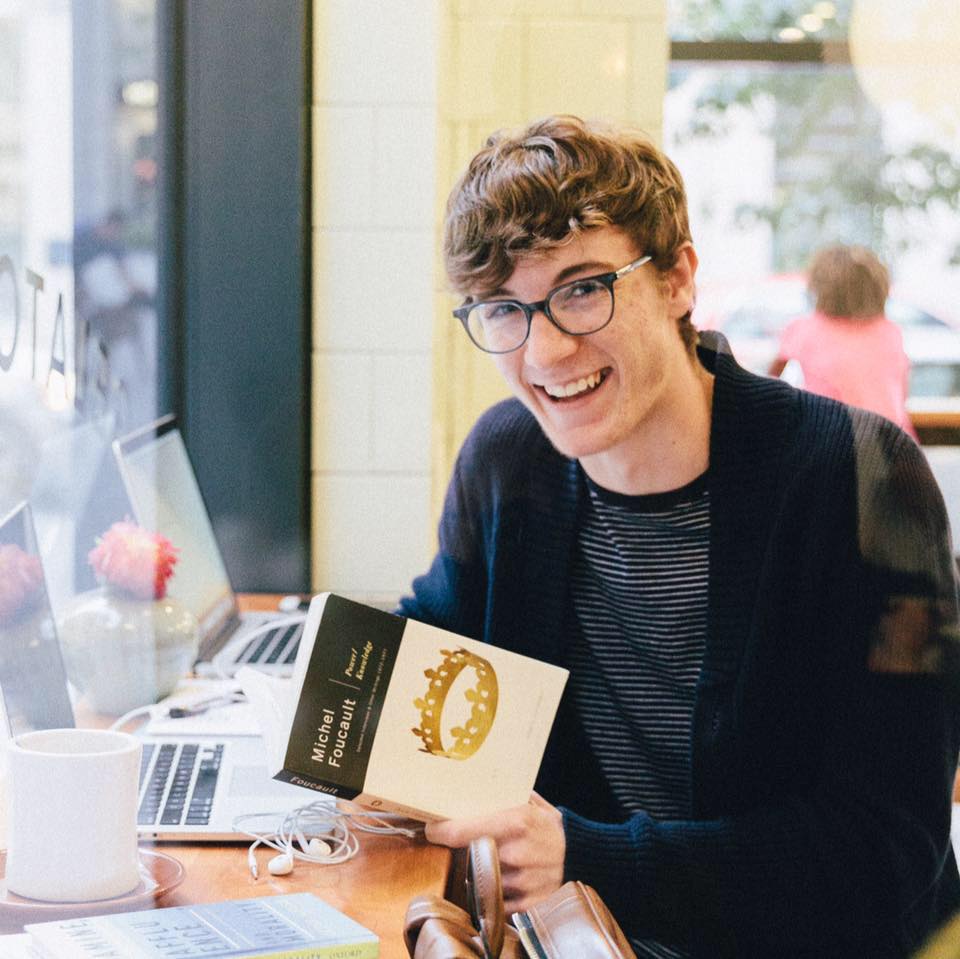By Julia Bruns
Jarrod Jeffcoat remembered the day in his U.S. Politics class last year when a black lesbian classmate turned to him and told him he had never struggled.
Jeffcoat, 19, who is white, didn’t exactly know why she had singled him out, or why she assumed he’d never faced hardship.
“College wasn’t even a consideration for much of my family,” Jeffcoat said in a recent interview.
Jeffcoat is one of hundreds of first generation students at American University struggling with the skyrocketing costs of college and the lack of resources as he also faces increased pressure on a racially-divided campus wondering about white privilege.
The 2018 senior class had approximately 175 first generation students when they were admitted, which is about 11 percent of the 1,600 target class size, according to AU.
Nationwide, advocates have voiced concerns about financial and social pressures on first generation students trying to get ahead. Concerns that transcend economic class, region or ethnicity.
“A lack of social and cultural capital can undermine access to financial resources and can thwart degree completion efforts,” according to the advocacy group, the First Generation Foundation.
The summer before Jeffcoat’s senior year of high school, he returned to his home in Albuquerque one day and found everything gone except for his cat, Puma.
He called his father and learned that he had abandoned him.
“I was in a place I had come to call home, but I didn’t have a home,” Jeffcoat said.
Jeffcoat squatted in his house before it was put on the market, and then he moved on to foster care.
Jeffcoat said that his primary concern at the time was where to sleep, but a high school counselor encouraged him to apply to colleges. Jeffcoat said the thing holding him back for a while was both financial, as aid was his only option, and emotional because he had no parental support.
“I knew I could do it, I was just so scared,” Jeffcoat said.
Now a sophomore, Jeffcoat said he is thriving. But, especially his freshman year, finding effective resources was difficult. While he relies on the support from other students, Jeffcoat said he has not connected with anyone else who is first generation.
“It goes unsaid. It’s something set up to be ashamed of,” Jeffcoat said.
That’s especially true for some white students on a campus that is racially charged following hate crimes both last year and this past semester.
Jeffcoat spoke at a panel, “Voices: The First Generation Perspective,” hosted by AU Blackprint last September offering advice to first generation students.
The first planned question did not mention being a first generation student at all but instead addressed navigating AU for people of color.
Jeffcoat said that treating first generation issues as primarily affecting minorities can lead to wrong assumptions about minority students as well as cause non-minority first generation students to feel excluded.
Alex Balbuena Alleyne disagrees.
Alleyne, 48 who is Dominican, also spoke at the first-generation panel but as an AU alum.
“They are two different things, but at the same time you can group them together,” Alleyne said.
Unlike Jeffcoat, Alleyne did find a first-generation community at AU. She joined Alpha Kappa Alpha, a historically black sorority, and said that two-thirds of her sorority sisters were first generation students.
Current students of color have reported feeling unsafe, which heightens the additional struggles they already have as minority students. The campus focus shifted advocating for students of color.
Jeffcoat self-advocates in an environment where he is first perceived as already privileged enough, because he is white. But he has no choice but to fight for resources because he could not continue at AU without them.
The racial climate, not first generation issues, is primarily why Alleyne decided to get more involved as an alum. But Jeffcoat revealed he had struggled with homelessness, she turned to him and said, “I’m so proud of you.”
Once people learned about some of his adversity, Jeffcoat said, the feeling in the room changed.
Jeffcoat was the only white speaker on the panel. The audience was 80 percent people of color.
But according to Tiffany Speaks, the Senior Director for the Center of diversity and Inclusion, “a majority of first generation students at AU are white students.”
Jeffcoat said that sometimes he has to share that he was homeless for his struggle to be deemed “substantial” and worthy of attention. And his story doesn’t end there, either.
Jeffcoat’s mom was living in Virginia in an abusive relationship while he finished his senior year of high school in New Mexico. Jeffcoat said she had always told him he was strong enough to go to college.
Unfortunately, she passed away just months before Jeffcoat began his freshman year.
“Every student has a story, and every family has a story,” Jeffcoat said.

You must be logged in to post a comment.